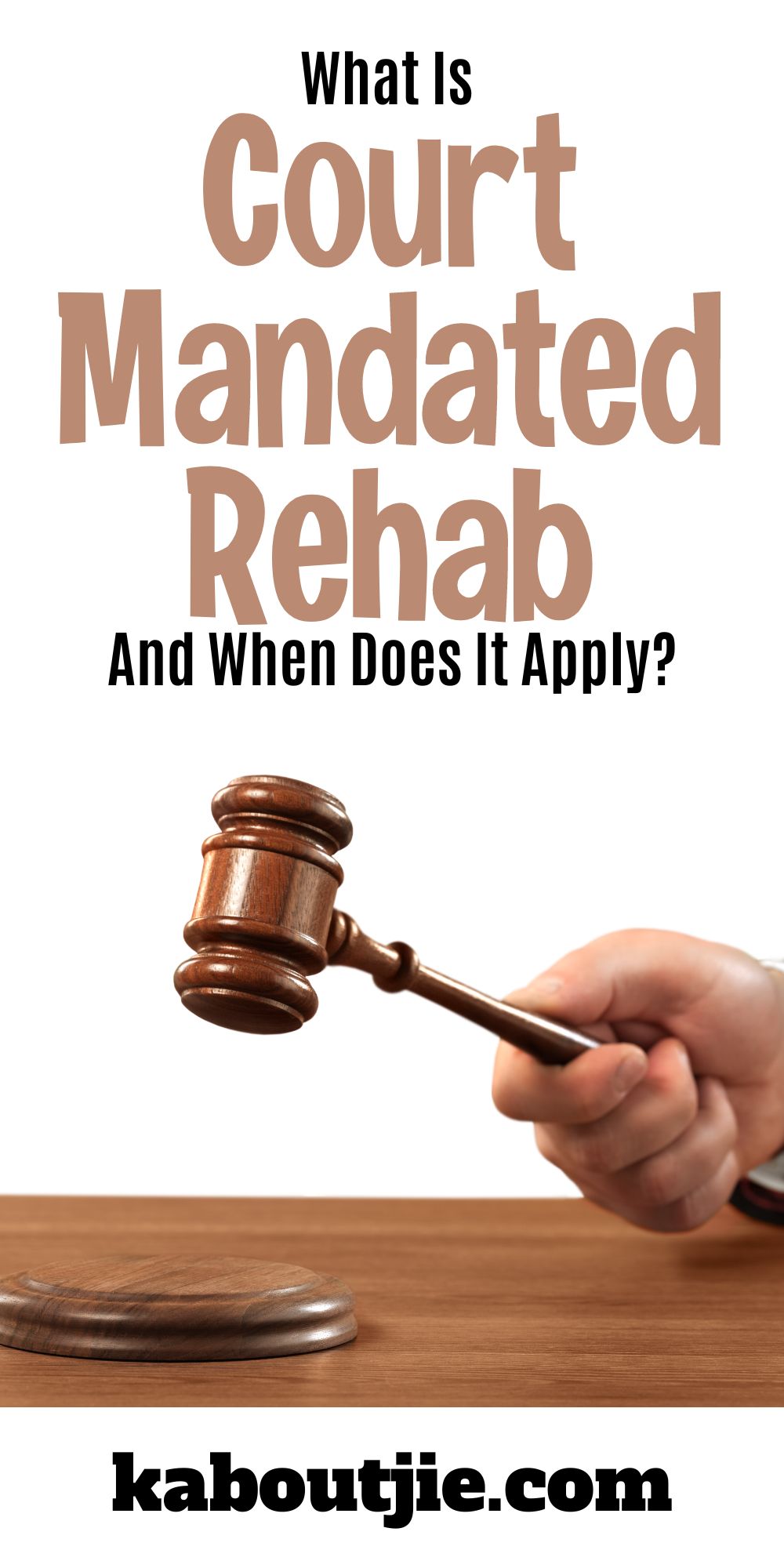If you’ve been ordered by a court to undergo therapy, you might wonder what this entails. Court-mandated rehab can apply in various situations, and the specific requirements will vary depending on the case. In general, court-mandated treatment refers to any kind of therapeutic intervention that a judge orders as part of a legal ruling.
There are a lot of reasons why a court might order someone to undergo therapy, and there are several different kinds of it. In this post, we’re going to be taking a closer look at court-ordered therapy, and how it works.

How Does Court Ordered Treatment Work?
The specific requirements of court-ordered therapy will vary depending on the type of offense you’ve been convicted of and the court’s ruling. However, there are some main things that you can expect if you’ve been ordered to undergo therapy as part of your sentence.
In most cases, you’ll be required to attend regular therapy sessions with a licensed counsellor or therapist. You might also be required to participate in other activities, such as attending anger management classes or drug rehabilitation programs.
It’s important to note that court-ordered therapy is not the same thing as probation. While you may be required to participate in therapy as part of your probation, this is not the same as being ordered by a court to undergo therapy.
Court Ordered Rehab Programs
If you have been convicted of a crime, the court may order you to participate in a rehabilitation program that is part of your sentence. This kind of therapy is typically focused on helping you to overcome any substance abuse issues that may have contributed to your criminal behaviour.
Court-mandated rehab programs usually involve attending regular therapy sessions and meetings and may also require you to take drug tests. The program’s specific requirements will vary depending on the court’s ruling, but participating in a court-ordered rehab program is often a mandatory condition of probation.
Therapy For Domestic Violence Offenders
A type of court-mandated therapy is the treatment of domestic violence offenders. If you’ve been arrested because of a domestic violence crime, the court may order you to participate in counselling or therapy as part of your sentence.
This kind of therapy is typically focused on helping you to identify and change any abusive behaviours. It may also involve attending anger management classes or participating in community service.

Sex Offender Treatment
Another type of court-mandated therapy is the treatment of sex offenders. If you’ve been arrested because of a sex crime, the court may order you to participate in counselling or therapy as part of your sentence.
This kind of therapy is typically focused on helping you to change any harmful or dangerous sexual behaviours. It may also involve attending classes or workshops on sexual offender treatment or going into the psychiatric unit for mandatory treatment to learn the coping skills required to live life without putting anyone in danger.
A psychological evaluation is done before the person will receive treatment, and after the set period, they can move forward with the treatment centre.
DUI Rehab Programs
If you’ve been convicted of a DUI, the court may order you to participate in a DUI rehabilitation program as part of your sentence. This kind of therapy is typically focused on helping you to overcome any substance abuse issues that may have contributed to your criminal behaviour.
DUI rehab programs usually involve attending regular therapy sessions and meetings and may also require you to take drug tests. The program’s specific requirements will vary depending on the court’s ruling, but participating in a court-ordered DUI rehab program is often a mandatory condition of probation.
Emergency Mental Health Holds
In some U.S. states, the law allows involuntary commitment for mental health treatment to protect the person or others from serious harm or to prevent them from deteriorating further. These are usually initiated by family members, police officers, or medical professionals rather than by courts.
A mental health professional helps the person with their mental health condition at a mental health facility. They will be observed while they attend treatment so the treatment facility can figure out if they need further mental health care, outpatient treatment or will the court-mandated treatments be enough to get them through.
After a 72-hour hold in a psychiatric hospital for evaluation, a judge will review the case and may mandate further mental health services.
Treatment Instead Of Incarceration
In some cases, the court might even order you to participate in a treatment program in lieu of incarceration. This means that instead of directly going to jail, you will receive treatment for any substance abuse or mental health issues that may have contributed to your criminal behaviour.
Treatment programs can vary widely, but they typically involve attending regular therapy sessions and other social factors.

Addiction Assessments (ASI)
This is substance abuse treatment that is court-mandated as an alternative to incarceration. It is a way of addressing the issue of addiction without resorting to jail time.
An Addiction Severity Index (ASI) assessment is often required for someone to be eligible for this kind of treatment. The ASI is specific a tool that is used to help assess the severity of someone’s addiction.
The ASI assessment is a face-to-face interview that covers seven different areas: medical, employment/support, alcohol, drug, legal, family/social, and psychiatric.
After this particular assessment is completed, a treatment plan is created tailored to the individual’s needs. The plan may include outpatient treatment, inpatient treatment, or a combination of both.
It is important to remember that not all states offer this kind of treatment as an alternative to incarceration. If you face jail time for a drug-related offense, you should check with an attorney to see if this is an option in your state.
The bottom Line: Does Court-mandated Treatment Work?
Even though this is something that will be different for everyone. There’s no denying that it’s one of the best ways to get someone healthy and back to a point where they can live a normal life after counselling services are complete. The best thing about this is that the services are completely confidential and can be a great form of treatment, in and out of prison.
 Kaboutjie SA Mommy Blogs by Lynne Huysamen
Kaboutjie SA Mommy Blogs by Lynne Huysamen




